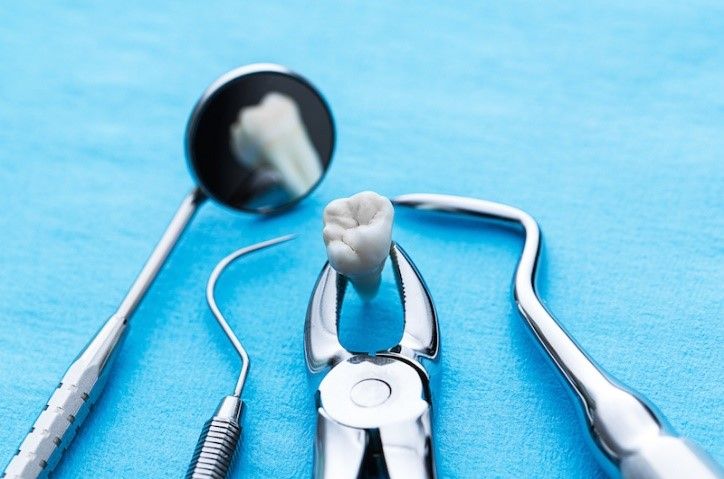
Oral Surgery
-
What to expect:If you need teeth to be removed, we will take every step to make sure you are as comfortable as possible. First, we will numb the area with local anesthetic. The dentist will test the area to assure you are numb. During the extraction it is normal for you to feel pressure, sometimes deep pressure. You will hear noises and that is normal too. Depending on where the tooth is and how easily we can access it you may need to be propped open wide and we will provide a bite block or prop to help you relax your jaw. If you would rather be sedated for the procedure, we offer many types of sedation in our office. Depending on what level of sedation we may need to schedule it for a later date. If the tooth extraction was difficult, we will sometimes dress the socket and place stitches. Post op instructions as well as ice packs will be given at the end of the procedure both verbally and written. Depending on the complexity of the procedure we may want to see you back to assure everything is healing as it should.
-
Socket preservation:If it is your hope and wish to replace that tooth with a future dental implant, we may discuss preserving the tooth socket for that implant. When this is done, we will draw a little bit of your own blood from an arm and mix it with a bone grafting material. Upon removal of the tooth the socket will be cleaned and rinsed. The dentist will pack the socket with the grafting material, over lay a membrane and sew the socket up. We do like to assess the healing and remove the stitches around two weeks after the procedure. This will keep the bone level and volume from collapsing upon healing and allow for a dental implant to be placed a few months later.
-
Wisdom teeth issues and removal:
Wisdom teeth can become problematic at any age. Wisdom teeth are not always able to erupt all the way. Sometimes only a portion of the tooth can come through the gums leaving a piece of gum tissue over them. This gum tissue can become sore and tender if food and plaque are not fully removed or if you traumatize it with biting on it. This is called “pericoronitis” and can be very painful. There are procedures we can do to remove this tissue but often times we recommend the wisdom tooth be removed. Impacted wisdom teeth left in the bone over time can also become problematic with cysts forming around them or the tissue within the developing sac becoming pathological. We use Cone Beam CT or 3-Dimenional x ray imaging to evaluate impacted wisdom teeth. If we see something suspicious we may request a radiologist evaluate the scan or refer your to our talented oral surgeons in the area.
Our office does offer some wisdom tooth removal. Fully impacted wisdom teeth, which means they are fully covered by bone will always be referred to our talented area oral surgeons. Partially erupted and sometimes fully erupted problematic wisdom teeth are not easy to get to and most of the time require that you open as wide as you can and hold open for a period of time. Sometimes we will request you be sedated because we can get your jaw to relax easier thus getting you open more as the tissues are the area will also stretch easier. This sedation will also provide you with anxiety relief and decrease your post-operative pain level. In order for us to better visualize how these teeth sit in the jaw and locate the vital structures closely related to your wisdom teeth we always require a 3-Dimensional x ray of the area before we proceed with scheduling the extraction appointment.
-
Post op and pain management:
It is normal to expect some minor pain and discomfort after a tooth or teeth removal. Depending on the difficulty of the procedure the dentist may prescribe you a few days of pain medication and/or an antibiotic. Due to the opioid epidemic we are limited on the number of pain medication tablets we can prescribe. We will coach you on how to use over the counter medication to assist with pain management as well as use of ice to minimize the post-operative inflammation. By following all our post-operative instructions including limiting tobacco use and following dietary guidelines your discomfort should resolve normally and quickly. Dry sockets usually develop due to not following instructions as well as the difficulty in the procedure.
If your pain does not resolve within a week or suddenly increases you should call our office right away.